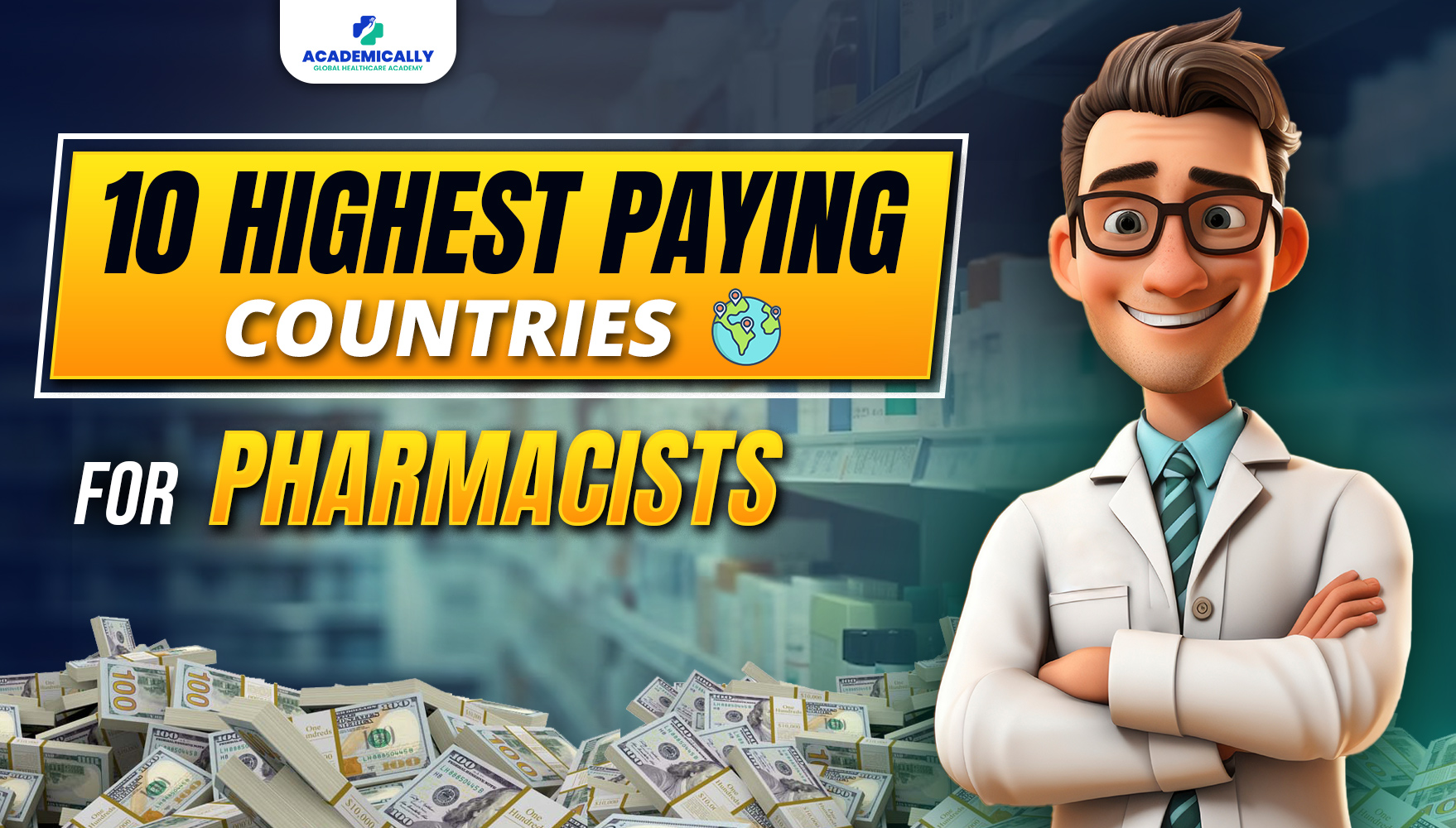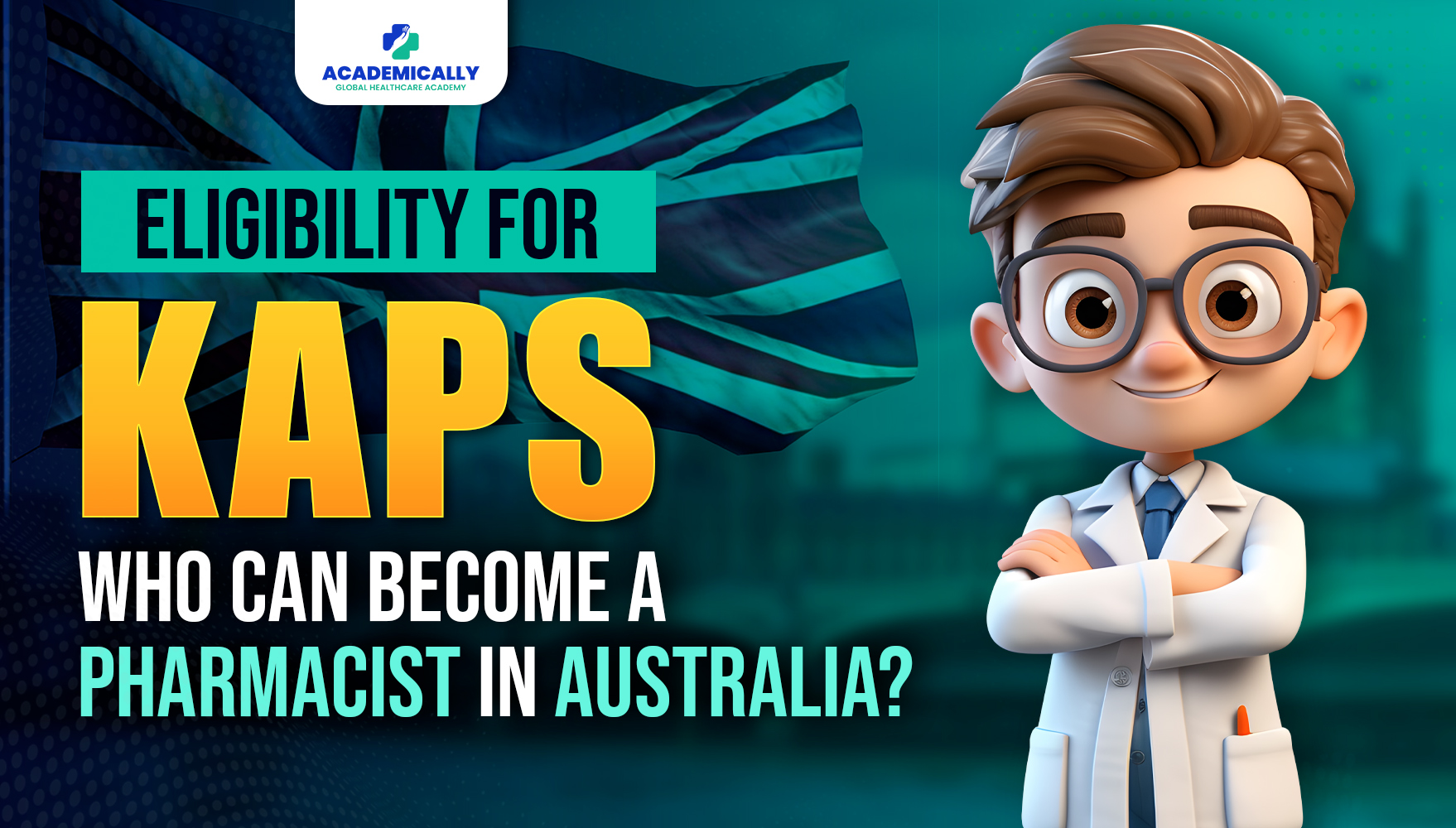A Brief Overview: Which Country Pays the Highest to Pharmacists?
Let’s explore the top 10 highest-paying countries where pharmacists are not just highly paid but hold a position of position in the healthcare system. These countries can open doors to a whole new world. Here are the top 10 countries:
| Country | Average Salary (Local Currency) | Approx. Salary in INR (₹) |
| Australia | AUD 104,291 | ₹5,836,103 |
| Canada | CAD 117,376 | ₹7,365,494 |
| Ireland | €82,139 | ₹8,256,201 |
| Germany | €47,052 | ₹4,735,760 |
| Switzerland | CHF 81,000 – CHF 100,000 | ₹8,708,180 – ₹10,750,840 |
| UAE | AED 53,965 – AED 104,291 | ₹1,255,944 – ₹2,360,000 |
| Iceland | ISK 7,440,000 – ISK 8,520,000 | ₹5,260,380 – ₹6,023,983 |
| USA | $142,514 | ₹12,185,167 |
| Sweden | SEK 408,000 | ₹3,647,697 – ₹4,398,694 |
| UK | £53,033 | ₹6,194,742 |
Don’t Miss Out: These 10 Countries Pay Pharmacists 5–10X More in 2025
1. Australia
Australia is one of the easiest countries to settle in and get a PR its major advantage is the easiest PR pathway for pharmacy graduates.
You can be a permanent resident in as little as 6 months to 1 year, making it a top destination for Indian pharmacists to settle abroad.
Australia offers an average salary of AED 104,291, which is around ₹5,836,103.
To be a registered pharmacist in Australia, you need to qualify for the licensure process, which is as follows:
- Initial Skill Assessment
- OPRA Exam
- English Proficiency Test
- Internship & Registration
Pro tip: Ensure you have completed the OPRA exam before appearing for the licensure exam. It will help you crack the exam on the first attempt itself, that too, with utmost confidence.
2. Canada
The most immigrant-friendly country is Canada, which requires skilled pharmacists in high demand.
A registered pharmacist in Canada earns CAD 117,376, which is around ₹7,365,494.
This country has a very transparent PR process, which makes it easy to follow and for pharmacists to settle in and build a future.
To be a registered pharmacist in Canada, you need to complete the following licensure process:
- Document Evaluation by PEBC (Pharmacy Examining Board of Canada)
- Pharmacist Evaluating Examination (EE)
- Pharmacist Qualifying Exam (Part I & II)
- Language Proficiency Test (IELTS or TOEFL)
- Practical Training &
- Apply for Registration
Important Update: Pharmacy colleges that have ACPE or CCAPP accreditation in 2025 can skip the evaluation exam, they are directly eligible to write the PEBC qualifying exam. Colleges such as JSS College of Pharmacy in India are included in this category.
Pro tip: It is always good to stay prepared. Go for a comprehensive PEBC exam preparation course. Take advantage of self-paced lessons, AI-based mock tests for preparation, to ensure the best results.
3. Ireland
Ireland’s healthcare system is growing quickly and pharmacists are an integral part. Ireland has a fast-growing healthcare system, and pharmacists are a core part of it. To expand their healthcare infrastructure more effectively, they need qualified pharmacists.
Ireland offers an average salary of €82,139, which is around ₹8,256,201.
The process of becoming a registered pharmacist is as follows:
- Application Review
- Holistic Assessment
- MCQ/OSCE Exams
Certification (Receive eligibility certificate to register)
Pro tip: Pursue a PSI exam preparation course to ensure you are completely prepared for the exam. Go for a coaching centre that has all the important resources to help you clear the licensure exam.
4. Germany
You may not know it but Germany is the largest economy in Europe with a very powerful healthcare system.
One of the major advantages of being a registered pharmacist in Germany is free education and affordable health services. If you want to settle in Germany, you have to qualify for the licensure exam and additionally, proficiency in the German language is of utmost importance
The average income of a pharmacist in Germany is €47,052, which is equivalent to ₹4,735,760 per year.
5. Switzerland
Famous for its beautiful mountains and scenery, Switzerland is also famous for being the home to top pharmaceutical companies,
A registered pharmacist is paid well while working in high-tech clinical and research settings. As you may know, for Switzerland, too, you need to go through the licensure process, and clearing the proficiency exam in one of their national languages ( German, French, or Italian) is also mandatory.
Being a registered pharmacist in Switzerland means high pay and a great quality of life, along with working in world-class clinical and research settings. However, besides the licensing process, you need to be proficient in one of the national languages that are German, French, or Italian.
The pay of a registered pharmacist in Switzerland is CHF 81K to 1L, which is ₹8,708,180 to ₹10,750,840 per year.
6. United Arab Emirates (UAE)
Many pharmacists from India settle in the UAE because of career growth and a high quality of life.
The key advantage is no income tax on salary; what you see on paper is your take-home salary, which means more savings and no deduction. Additionally, for people who struggle with being proficient in English and have a hard time qualifying for the English test, the UAE doesn't require an English proficiency test.
Pharmacists in the UAE have an average income of AED 53,965, which is approximately ₹1,255,944 per year.
To become a registered pharmacist in the GCC (Gulf Cooperation Council) region, each region has its own licensure exam and process. Some of which are:
| Country / Emirate | Licensing Body | Pharmacy Exam Name |
| Bahrain | NHRA | Bahrain Pharmacy Licensure Exam (BPLE) |
| Dubai (UAE) | DHA | DHA Pharmacist Exam |
| Abu Dhabi (UAE) | DOH | DOH Exam |
| Qatar | NPQE (formerly QCHP) | NPQE Pharmacist Exam |
| Kuwait | Ministry of Health | MOH Pharmacist Exam |
| Saudi Arabia | SCFHS | Saudi Pharmacist Licensure Exam (SPLE) |
| Oman | Oman Ministry of Health / Prometric | Oman Prometric Pharmacist Exam |
7. Iceland
You may be wondering why Iceland is in the list, it might surprise you, though being a small country, the pay is quite the opposite. Iceland offers a great way and a healthy work-life balance with a steady and structured healthcare system; as a result, it is in the top 10 list.
Pharmacists in Iceland earn an average salary of ISK 7,440,000 to ISK 8,520,000 per year, which is approximately ₹5,260,380 to ₹6,023,983 annually.
8. United States of America (USA)
In terms of income, the U.S.A. is always ranking at the top as one of the highest-paying countries for pharmacists globally.
Pharmacists in the USA earn an average salary of $142,514, which is ₹ 12,185,167 per year.
To become a registered pharmacist in the USA, you need to follow this licensure pathway:
Apply and get your FPGEE Certification
- Qualify the FPGEE Exam
- Complete Internship Hours
- Qualify the NAPLEX
- Qualify the MPJE (if required)
- Register as a pharmacist in the U.S.A
Pro tip: Get yourself prepared for the FPGEE and NAPLEX exams. Pursue a preparation course from an acclaimed coaching centre. With AI adaptive exams, self-paced sessions, and community groups, you can benefit a lot from such online programmes for optimal performance.
9. Sweden
Sweden is known for its public healthcare, high quality of life, and a progressive work culture, making it a perfect destination for pharmacists to settle.
It is best for those who aim for stability and a balanced lifestyle. Its major advantage is the exceptional work-life balance, along with free public healthcare and education.
Pharmacists in Sweden earn an average annual salary of SEK 408,000, which is approximately ₹3,647,697 to ₹4,398,694.
10. United Kingdom (UK)
Pharmacists in the UK earn an average salary of £53,033, which is approximately ₹6194742 per year.
To become a registered pharmacist in the UK, follow this pathway:
- Check your eligibility criteria
- Clear English proficiency test
- Apply and complete the OSPAP course of duration 1 year
- Do a 52-week mandatory training
- Qualify for the GPhC registration assessment
- Register as a pharmacist in the UK
Why Consider Career Opportunities Abroad?
Higher Earning Potential: Settling abroad means having a high-paying salary; you’ll get a minimum jump of 5x on your salary, which can promote financial stability and growth.
Professional Development: Learning diverse practices and approaches of the respective healthcare system can motivate pharmacists' skills, making them more adaptable and faster learners.
Global Networking: Usually, when you go abroad, you’ll find a multicultural setting, professionals from around the globe, which gives you a chance to make global connections that can help advance your career.
Cultural Exposure: Living abroad means learning about a different cultural setting and broadening your mindset. This can help you understand the country's healthcare system and support personal growth, too.
Take Your Pharmacy Career Global. Don't let borders limit your dreams. Whether it's Australia’s fast PR, the USA’s high salary, or Europe’s clinical opportunities, Academically is here to guide you every step of the way.






